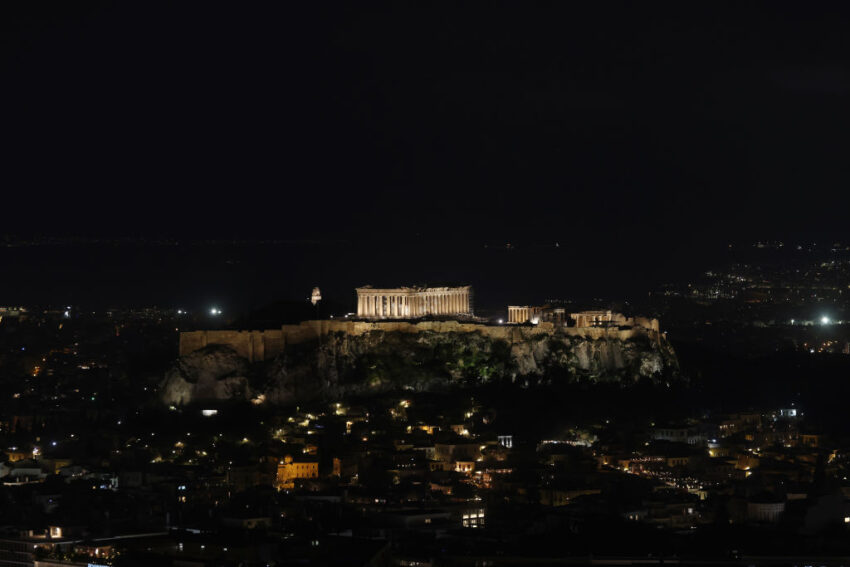Marathon Venture PartnersAccording to partner Panos Papadoplas, a venture firm in Athens that is proud to be “one -day partners for Greek tech partners”, according to his fellow Panos Papadoplas, shut down his latest fund with only $ 75 million in capital promises.
The vehicle has raised the firm’s total assets to 175 million-an eight-year-old in Greece, a meaningful amount for the badge stage investor and some mass costs. Among them, the marathon portfolio company was sold to CNH last year, which is a maker of farm machinery and construction equipment. Cash Deal It costs $ 110 million. The marathon also sold some of his shares in the box, in an investment firm in investing in CyberScuse and Talent Assessment Platform. Secondary transaction.
On Thursday, May 8, as part of the first hardened evening of the Tech Crunch in Athens as part of the evening we spoke with Papadoplas before sitting personally. Deep divers With the Prime Minister of Greece, Cariacos Matsotoxis. What did we want to know – and what would be the main questions Thursday night – that’s: Why Greece, and why now?
Greece has historically seen investment in less projects than other European countries. When the fundraising globally has become more difficult, what, if anything, what has happened locally that has helped you raise the Million 75 million funds?
For those starting, the marathon is a high percentage of the first percentage globally [realized returns]; We created a portfolio that first caught the existing Zetjist, for example, with the help of AI, scientific research, robotics or defense became commonplace.
What is your firm’s dissertation and how is the dissertation of this latest fund because of the expansion timeline we are seeing to go out globally?
We are supporting the founders who do something hard in important markets. This can be difficult because it requires unique knowledge, such as a research PhD, or a high agency, which means a regular or neglected industry such as power grid management. And we will continue to double our rapidly growing community, which is collecting experiences and skills in addition to ambitions.
Taxkarnch event
Berkeley, ca
|
June 5 June
Greek startups have traditionally faced challenges that go beyond the domestic market. How are you evaluating a company’s international growth capacity in this environment where capital performance makes more differences?
I request to disagree. Greek startups have taken advantage of local capabilities to serve leading global consumers and markets from the first day. In our portfolio, there is no income from the domestic market. But they are serving the best part of Fortune 500.
At the same time, the performance of the capital and the team Great is the second nature for our community.
We are watching low IPOs globally and extending the period of holding for venture -backed companies. How did your conversation affect this with your limited partners about expected timelines and return?
We do not need Decorcouris to work for our fund economics. We initially invest, maintain enough equity positions, and keep our fund size smaller. These meaningful profits provide different opportunities, including secondary and strategic M&A, well before IPO. We returned seconds in 2021 when most of the market was promising unlimited holding hours. In our culture, cash is king. It seems that many others have forgotten it.
Many European VCs are emphasizing deep tech and AI. Is the marathon a similar approach, or do you see different opportunities related to the Greek ecosystem?
Of course we are all, but the definition of deep tech has been enhanced and that means many different things for different people. We are not paying attention to a particular sector – instead, we are focusing on changing our fields. We were probably the first generalist VC to invest in defense before the Ukraine war.
Greek founders have historically received less financing than counterparts in Berlin, Paris, or Stockholm. Are you looking at the prices of Greek startups that reflect this waiver, and do this create better profit opportunities?
In our experience, it is not about geography or price. We are backing the founders in unanimous opportunities, which will mostly ignore the VCS. We move fast with certainty and we do not ask who is investing. These tables can look like stacks. They are still not.
Given the environment challenging the Global Exit environment, how are you advising your portfolio companies about strategic alternatives like secondary sales or ace Haier?
We work with our portfolio companies towards the already default scenario. Starting there, all the options are on the table. We see that the founders really want to drive their companies for a long time. We believe that a secondary sales can actually help it, and often we support such scenarios.
The European Union has called for a startup through various funding mechanisms. How important is the extraordinary capital of these sources for your portfolio companies compared to five years ago?
We welcome any such move. However, we recommend that our portfolio founder do not waste time on non -market activities.
How has Greece’s better economic situation affect your fundraising process and Startups standards you are seeing?
It is always good when you are not making press headlines, but what we do is less related to the local macro. When it comes to the talent front, I would really say bid -umpireism that, if there is any connection, it is upside down. Disaster is the mother of all invention.
Many American VCs have withdrawn from European investment. Has it created more opportunities for local funds like marathon, or has it made syndicating deals more difficult?
This is definitely a different market but also creates growing opportunities for European investors. I don’t think the capital floods in 2021 really changed the opportunity for European companies. We should always trust ourselves and be associated with the founders for a long period of time.
